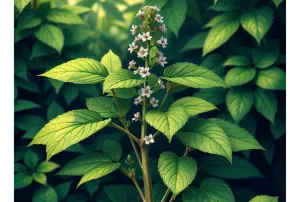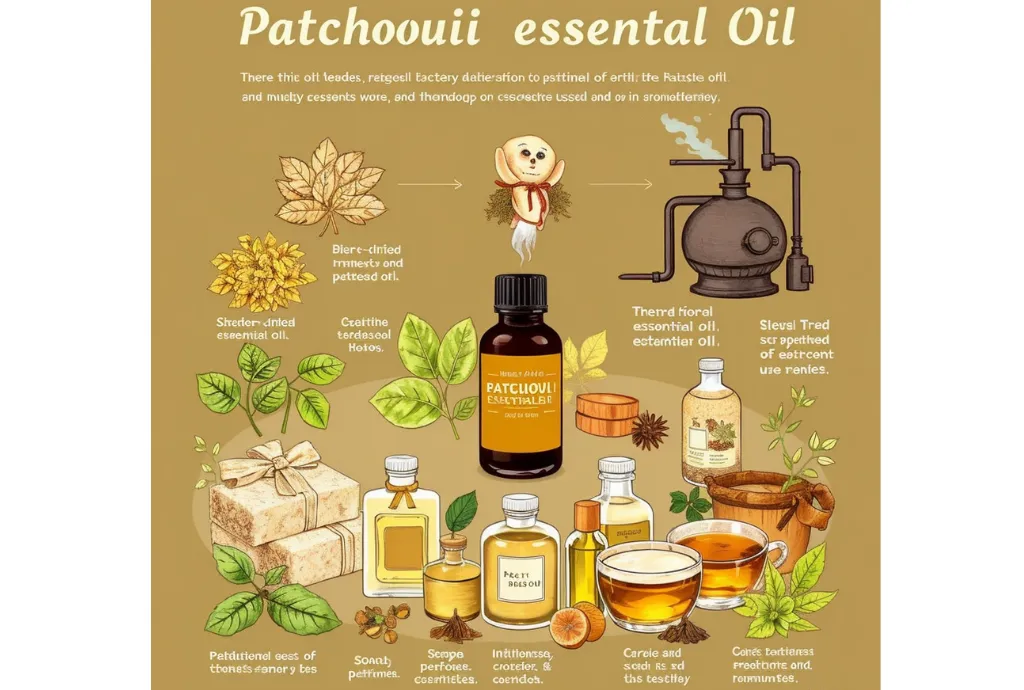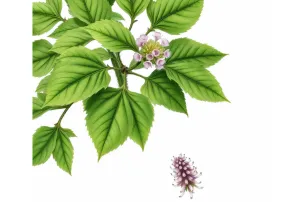If you’re considering installing a metal roof, you might wonder if it will be noisy when it rains. As someone with experience in roofing, I can assure you that metal roofs are not as loud as expected. The key lies in the installation.
A metal roof can be quiet if installed correctly with the right underlayment and insulation, just like other roofs. Rain sounds can be calming, like the soft leaves rustling on a fragrant flowering mint plant.
The Patchouli plant in tropical Asia is valued for its essential oil. Similarly, a good metal roof is known for lasting long and performing well in heavy rain without any smell.
Whether you’re sitting inside during a storm or enjoying the fragrance of incense made from Patchouli, a metal roof will offer peace of mind that won’t disturb your comfort.
Physical Description:

Many people worry about the noise of metal roofs during rain. A well-installed metal roof doesn’t need to be noisy.
A shrubby plant can grow up to 1 meter tall. It may look delicate, but its large, fragrant leaves are strong and can survive in tough conditions. Similarly, a metal roof with proper underlayment can handle the rain quietly.
The oval-shaped and irregularly toothed leaves of this plant can be compared to the placement of the panels of a metal roof to reduce noise.
The plant has hairy stems with small purple or white flowers, similar to how metal roofs are built to reduce noise.
These flowers grow on thick spikes with long parts. These flowers grow on thick spikes with long sections. They represent the careful work required for roofing. This work ensures that a metal roof remains stable during heavy rain, like a garden filled with fragrant plants.
Patchouli Overview
Patchouli is a flowering plant known as Pogostemon cablin, belonging to the mint family Lamiaceae. This bushy perennial herb typically grows upright with erect stems reaching up to 75 centimeters (about 2.5 feet).
Patchouli is a tropical Asian plant that produces small, pale pink-white flowers that add to its unique appearance. Its fragrant leaves are highly valued, and they are mainly used to make essential oil, which is used in perfumes, cosmetics, and incense.
Native Regions and Distribution

Patchouli is native to the island regions of Southeast Asia, including Sri Lanka, Indonesia, and the Malay Peninsula. It also grows naturally in New Guinea, the Philippines, and Northeast India.
Due to its fragrant essential oil and various commercial uses, Patchouli is widely cultivated in tropical climates worldwide, including Asia, Madagascar, South America, and the Caribbean.
Indonesia is a significant producer, contributing to about 90% of the global volume of patchouli oil, with an annual production of around 1,600 metric tons.
Patchouli Oil Benefits and Uses
Patchouli oil, extracted from the leaves and stems of the patchouli plant, is well-known for its characteristic scent, a blend of woody, sweet, and spicy notes.
This essential oil is a scent additive in perfumes, cosmetics, and incense products. Beyond its aromatic qualities, patchouli oil has a variety of uses around the world. It is commonly used to treat skin conditions such as dermatitis, acne, and dry, cracked skin.
Also Read: Gadsden Flag: More Than Just a Yellow Banner Value
Patchouli oil is valued for its ability to help with colds, headaches, and stomach issues. It can also help with depression and relaxation and reduce stress and anxiety.
It’s also effective in managing oily hair and dandruff and has been used to control appetite. Patchouli oil is a natural insecticide with antifungal and antibacterial properties. It can be added in small amounts to flavor foods, candies, baked goods, and beverages.
Pain Relief
Patchouli extract has shown promising pain-relieving effects in various studies. Studies with mice show that patchouli extract can lessen pain response in various tests.
This pain-relieving effect is closely linked to the extract’s anti-inflammatory properties. The extract helps alleviate pain by reducing inflammation, making it a potential natural remedy for managing discomfort associated with inflammatory conditions.
These findings highlight the therapeutic potential of Patchouli in providing pain relief through its natural anti-inflammatory mechanisms.
Skin Application
Patchouli oil is widely recognized for its benefits in skin application. Studies have shown that when mice were treated with patchouli oil, it offered protective effects against ultraviolet radiation, helping to prevent age-related damage to the skin.
This included reducing wrinkle formation and increasing collagen content, critical factors in maintaining youthful skin.
Though much of the research has been performed on animals, these findings also suggest potential benefits for humans.
Patchouli oil is believed to help improve skin elasticity, reduce signs of aging, and may even protect against environmental damage. It is a popular choice in skincare routines for those looking to enhance their skin’s appearance and health.
Antibacterial Activity

oil has demonstrated significant antibacterial activity in various studies, showing its ability to combat disease-causing bacteria. One study highlighted its effectiveness against biofilms and virulence factors, which are crucial for bacteria to colonize and evade host defenses.
Notably, oil has been tested against methicillin-resistant Staphylococcus aureus (MRSA) strains, which successfully inhibited bacterial growth.
Additionally, a blend of essential oils, including patchouli oil, inhibited the growth of bacteria like Pseudomonas aeruginosa, Staphylococcus aureus, and Streptococcus pneumonia.
In particular, liquid soap containing oil effectively inhibited the growth of P. aeruginosa. Oil is also effective against S. pneumoniae. It works better than other combinations, making it a useful natural option for fighting bacterial infections.
Antifungal Activity
Various studies have recognized patchouli oil for its potent antifungal activity. This oil can fight fungi that cause diseases like Aspergillus niger, Cryptococcus neoformans, and Candida albicans.
The antifungal properties of oil are particularly noteworthy against C. neoformans and A. niger, where it has demonstrated significant inhibitory effects.
Previous studies have further supported these findings, establishing patchouli oil as a strong candidate for natural antifungal treatments.
It can fight fungal infections, making it useful in traditional and modern medicine. It is a natural treatment option.
Side Effects and Who’s Most at Risk
While patchouli oil offers numerous benefits, it’s essential to be aware of potential side effects and who might be most at risk.
Some people might get irritated skin or be allergic to patchouli oil if it’s not diluted correctly. To avoid these reactions, it’s crucial never to apply undiluted essential oil directly to the skin.
oil can affect blood clotting. Therefore, it should be avoided by people on blood-thinning medication, undergoing major surgery, or with bleeding disorders like hemophilia.
It’s important to remember that essential oils are highly concentrated, so they should be used cautiously. Always ensure they are adequately diluted before skin application or aromatherapy. Also, never consume essential oils without consulting a qualified medical professional, as ingestion can lead to serious health risks.
Closing Thoughts
Patchouli oil is a versatile and powerful essential oil with many uses, from aromatherapy to skincare and antibacterial treatments. Its unique fragrance and therapeutic properties have made it a staple in traditional and modern medicine.
Use lavender oil cautiously to prevent side effects, especially if you have sensitive skin or health issues. Be careful with essential oils.
Understand the pros and cons of oil before incorporating it into your wellness routine. This will help you enjoy its benefits while minimizing any potential risks.




